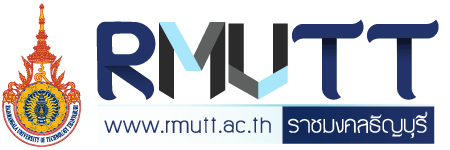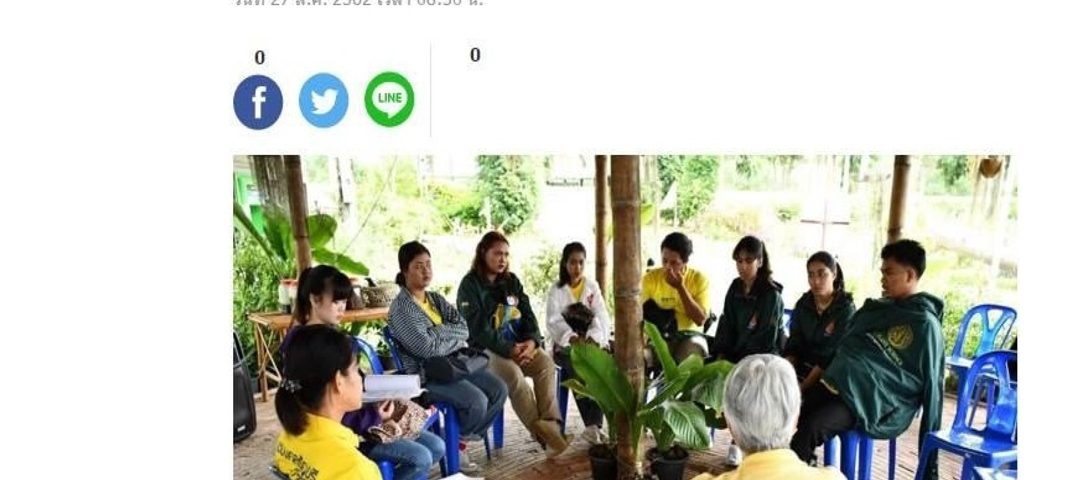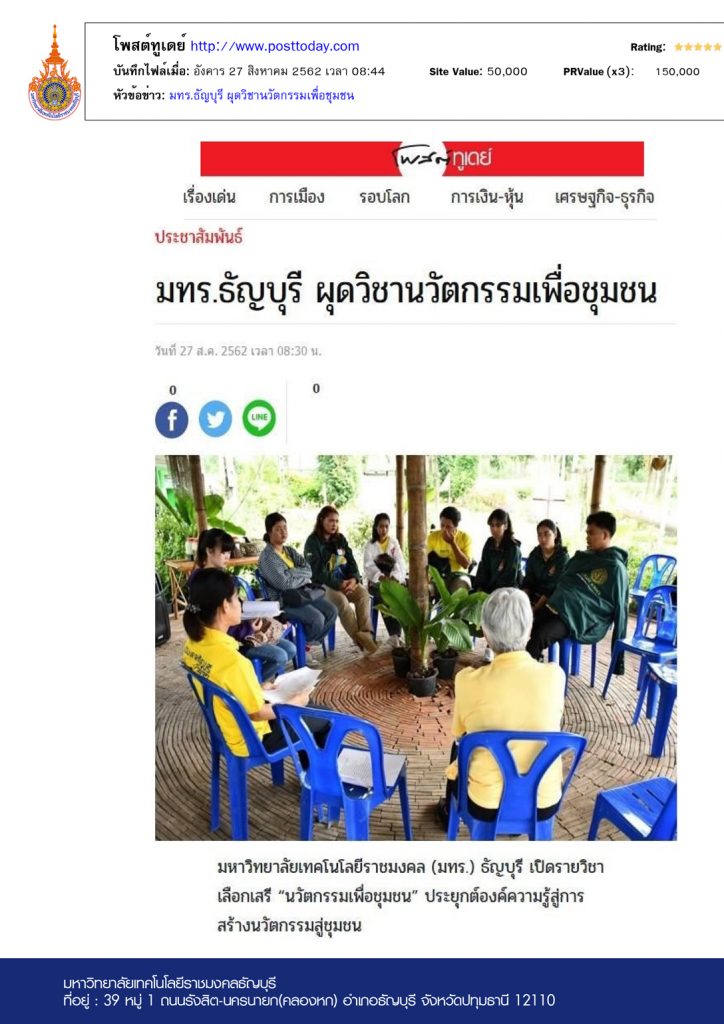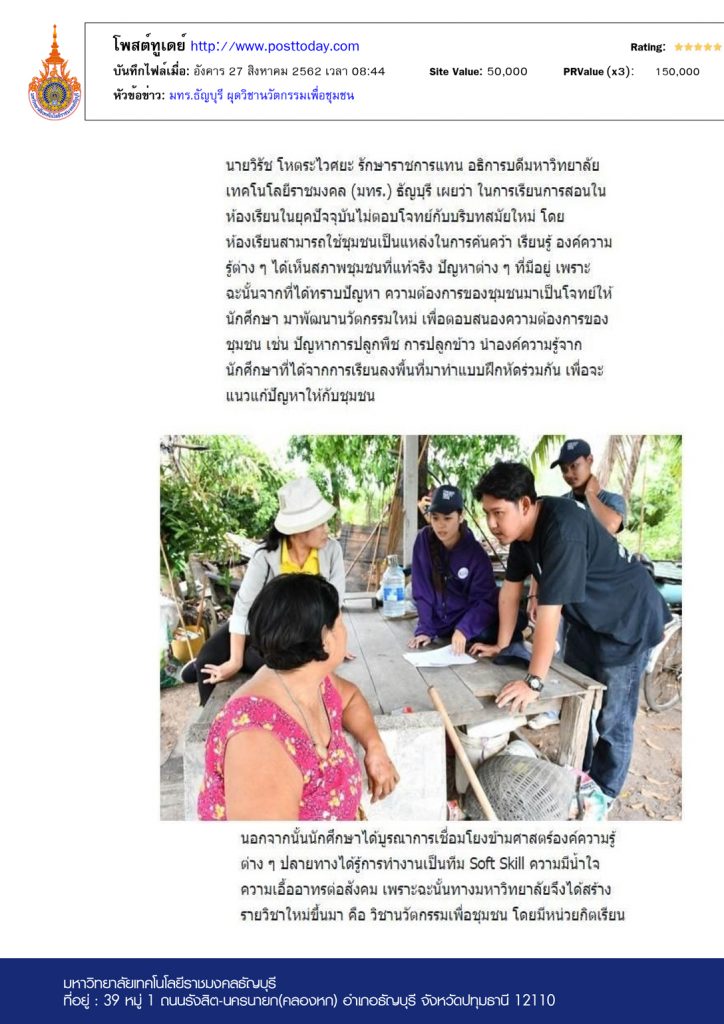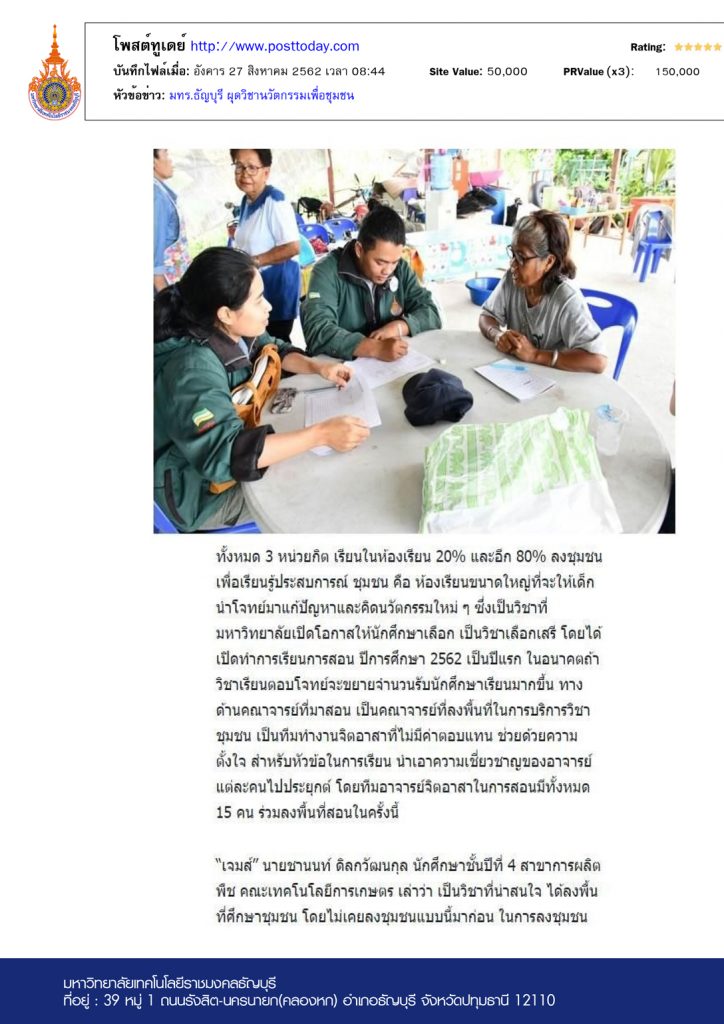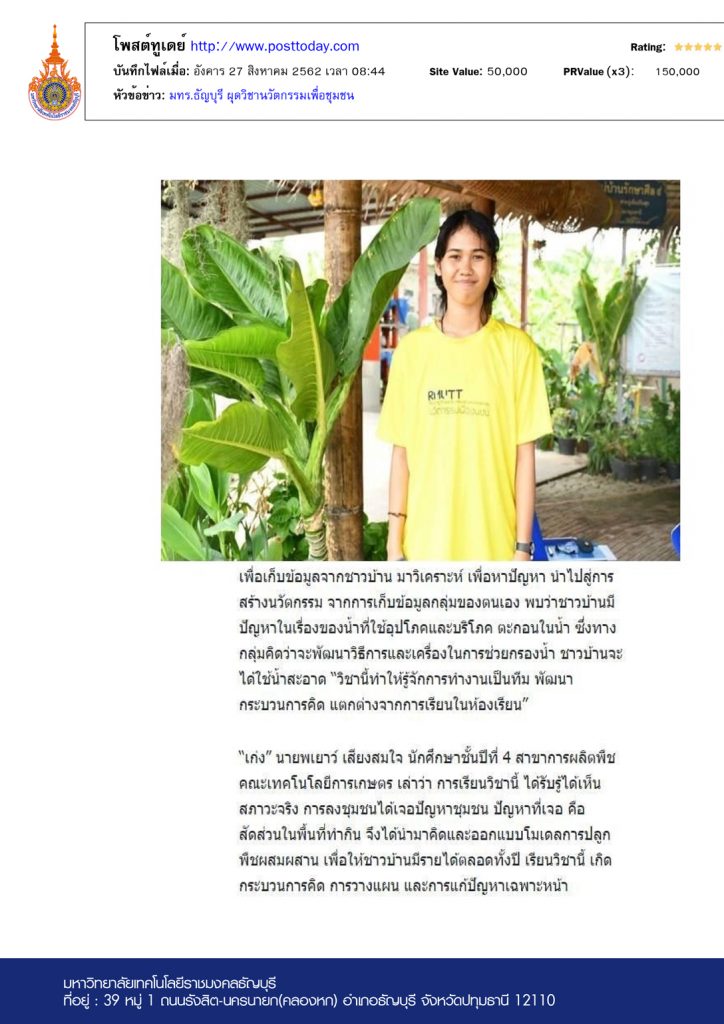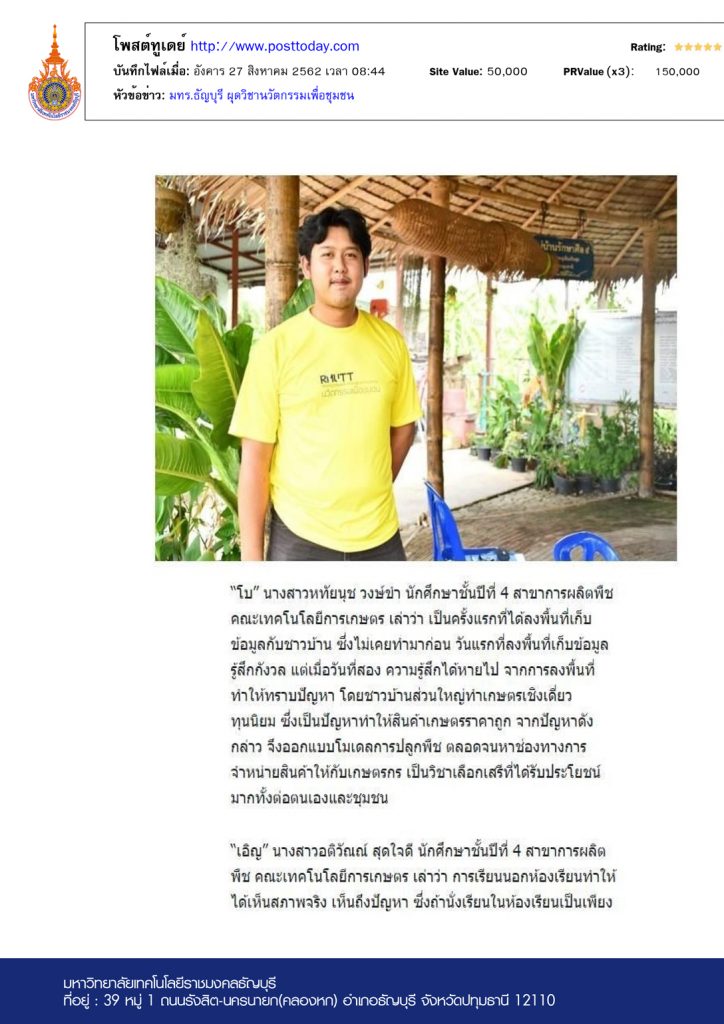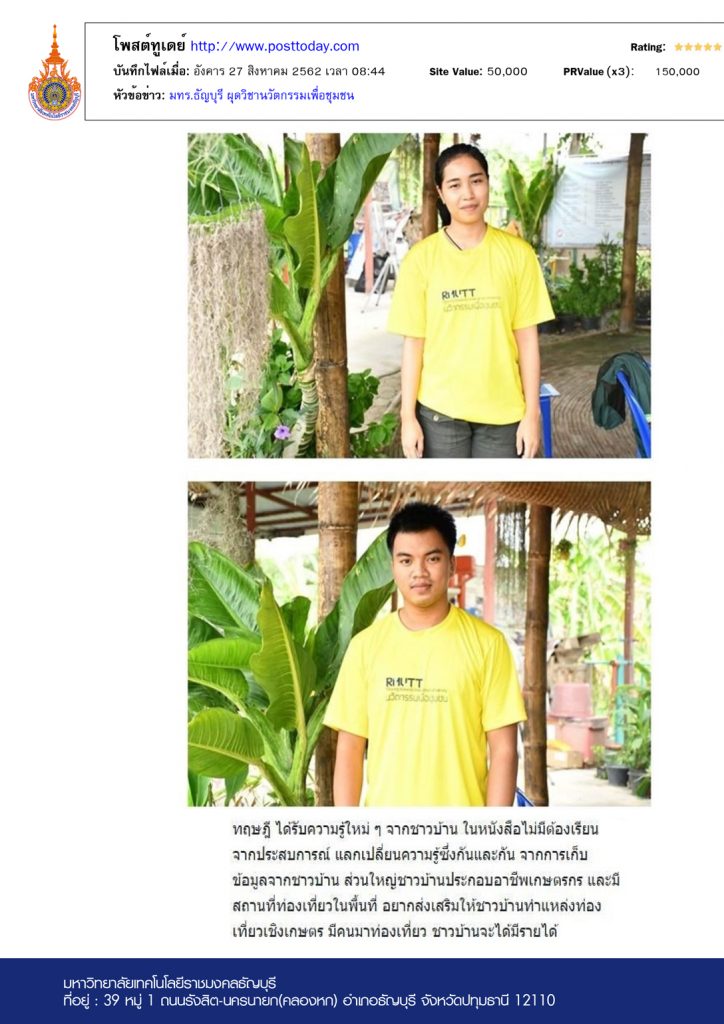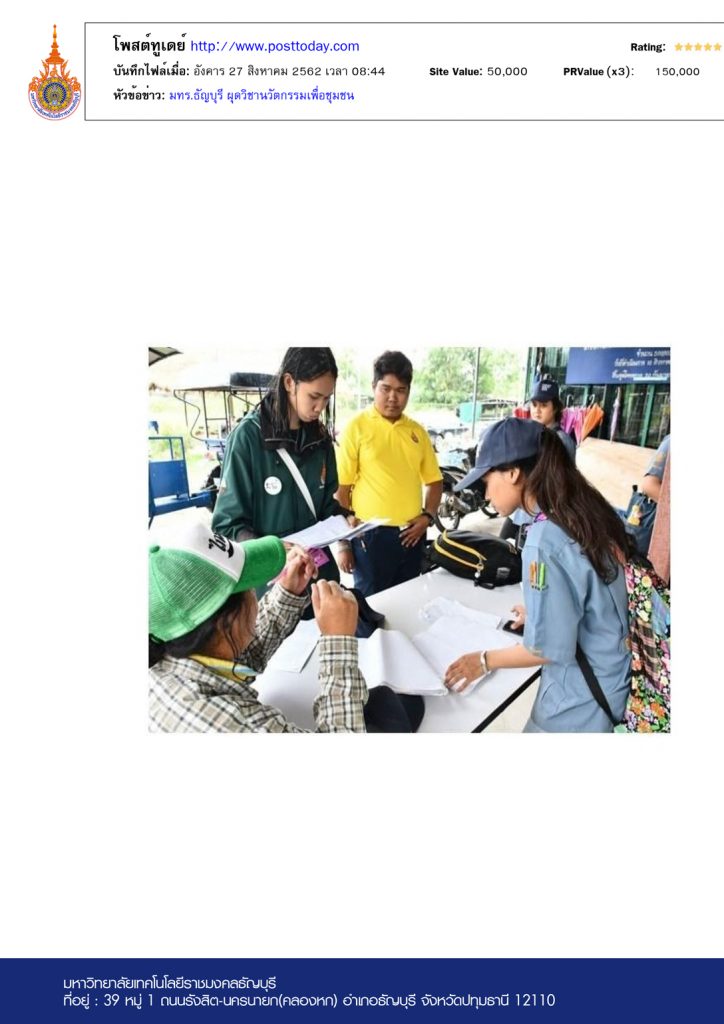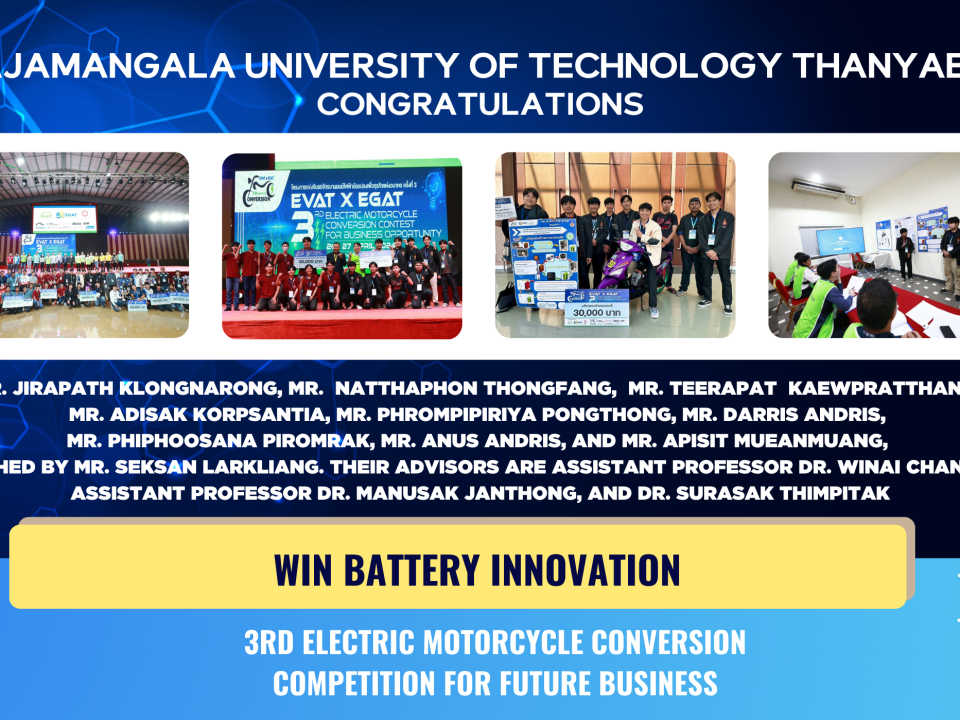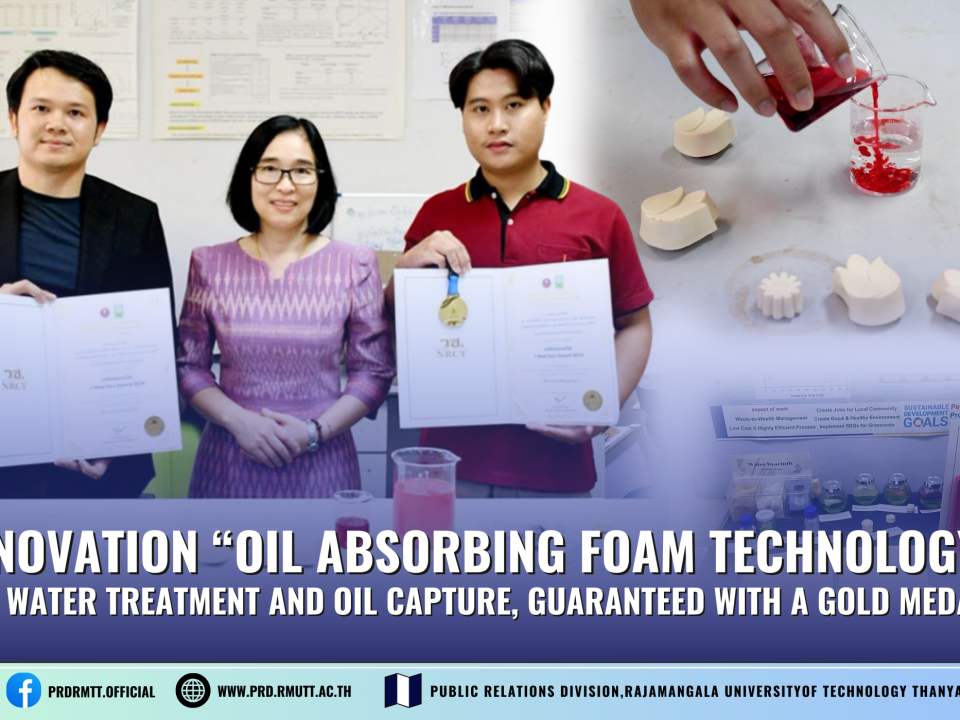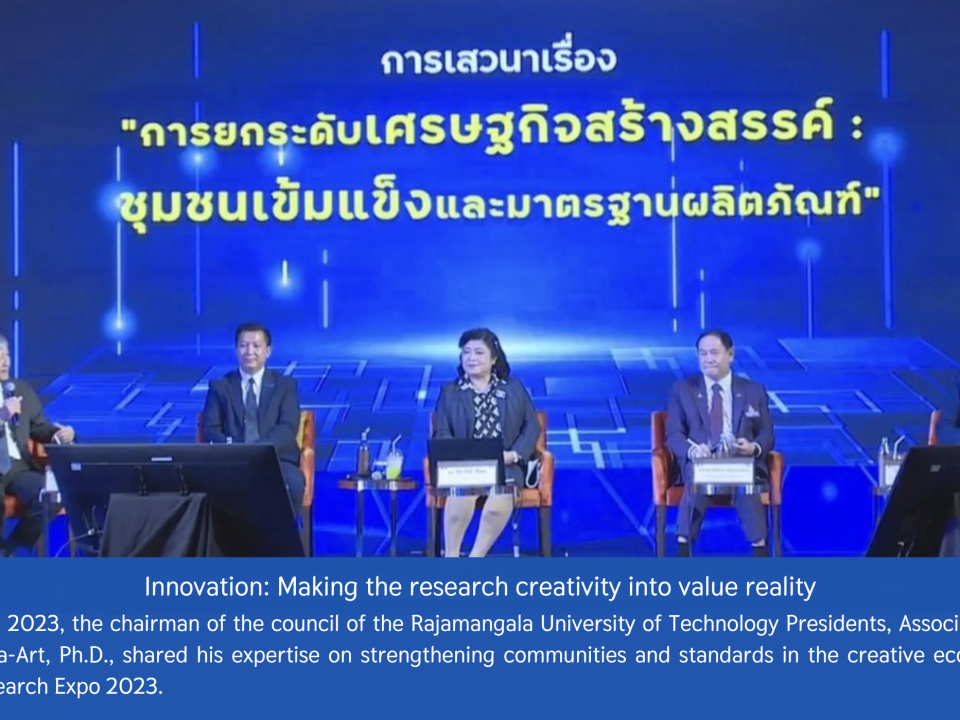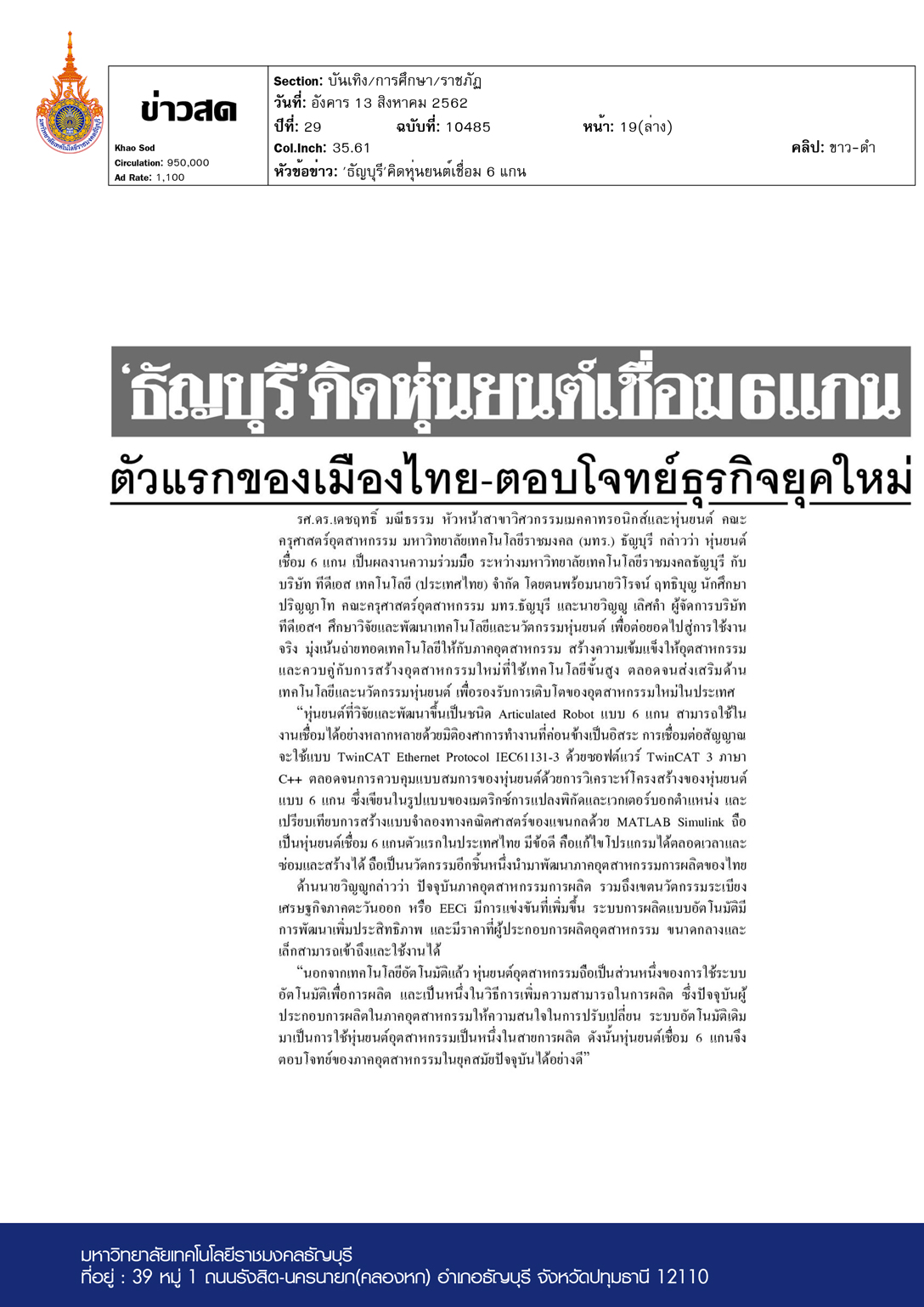
‘RMUTT’ invents 6-axis welding robot The very first in ‘RMUTT’ invents 6-axis welding robot The very first in Thailand – to meet needs of modern business.Thailand – to meet needs of modern business.
13/08/2019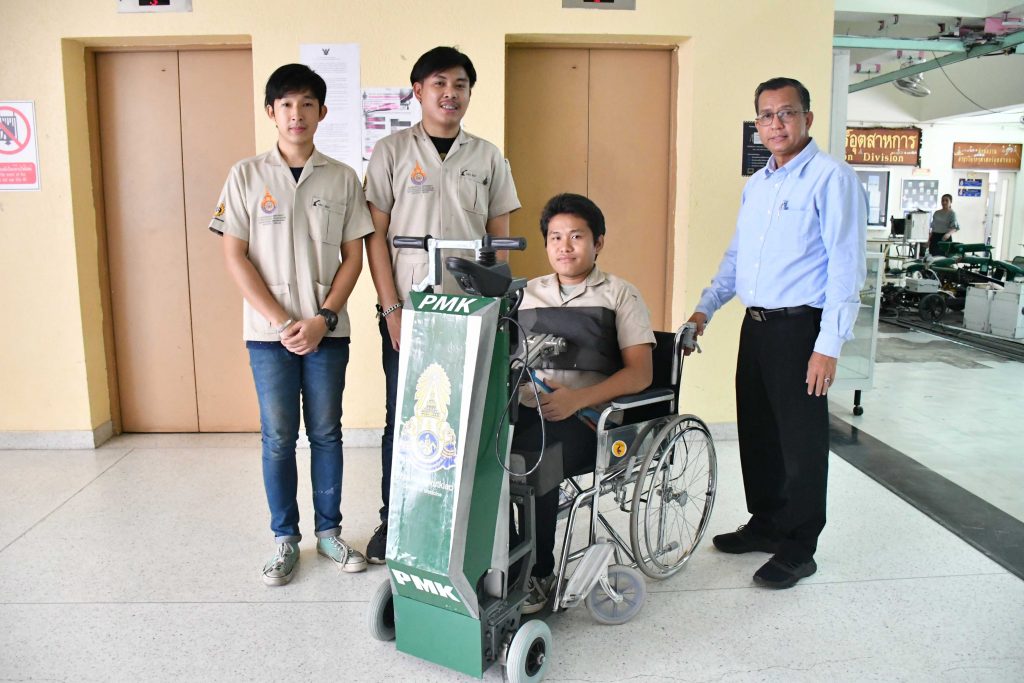
A collaborative innovation among the 3 institutions, ‘PMK: Multipurpose Electric Powered Wheelchair for the disabled
09/09/2019RMUTT introduces its newly designed ‘Innovation for Community’ course
Rajamangala University of Technology Thanyaburi (RMUTT) opened its elective course for enrolment on “Innovation Community” in order to facilitate community with new innovative knowledge.
Mr. Wirat Hotrawaisaya, Acting President of Rajamagala University of Technology Thanyaburi revealed that only classroom teaching in the modern days could not facilitate of what the students need for their career and thus a practical experience outside classroom with the local community would be an integral part of helping students aware of the community needs through research and practice. To meet those community needs, real problems should be recognized and yet developing new innovation was one of the way to initiate and deal with the community issues including agricultural problems such as rice farming and plant growing. Students would be able to make use of their classroom knowledge integrating with their experience acquired from their observational field study to help solve the local problems.
Besides having integrated various academic knowledge and practical one, students were able to acquire important soft skills including thoughtfulness and generosity and therefore, the university had decided to create, “Innovation for Community”, a new 3-credit course with 20% class instruction and 80% outside classroom activities. Regarding to the activities, students were reinforced to gain their experience from the community which was considered a practical place from where students could be learning their problem solving skills to help create new innovation for the community itself. This elective course would be open for enrollment for the very first time in Academic Year 2019 and in case, the course was successful, additional class space would be opened for enrollment. Concerning course lecturers, these specialists were volunteering without expectation of compensation and determine to help their students succeed and thus, these lecturers would try their very best to pass on their expertise to students. Additionally, there would be 15 volunteering lecturers participating the course.
A 4th year student in the Department of Agriculture Technology, Mr. Chanondilok Wattanakul or “James” revealed that this course was considered very interesting due to the fact that he had a chance to work with the community and this was his first time. Collection and analysis of data could help resolve community problems and eventually led to creation of new innovation. From his personal experience in collecting he found that locals in the community had been facing water pollutions including sediments. He had decided to create water filter for the community so they could have clean water to consume. “I really believe that this course promotes you to be a better team worker and yet supports you to have improved cognitive development that you may get from inside the classroom.” James added.
A 4th year student in the Department of Crop Production Technology, Mr. Payao or “Keng” expressed that this course really revealed the truth about community problems and conditions. She found that there was a problem with the community arable area and thus, model of integrated farming system was designed to help locals to increase their annual income. After learning the course, she was convinced that her thinking process, planning, and coping with difficult situations had improved.
A 4th year student in the Department of Agriculture Technology, Mr. Hyathainuch or “Baeu” said that it was her first time going to the community to collect data. On her first day, she felt a little bit nervous but the next day she felt much better. During her field work, she was aware of the community problems after analyzing data that she had collected, she found out that most locals implemented monoculture system that may produce less yield with low income. And so, she had attempted to help design planting model and finding distribution channel. She also believed that this elective is beneficial to herself and community.
“Earn”, a 4th year student in the Department of Crop Production Technology, Ms.Attiwan Sudjaidee, gave her thoughts that learning outside classroom could help see problems with real conditions when compared with the inside one. She also gained new knowledge from the locals that couldn’t be found in textbooks either from exchanging ideas or collecting data from the locals. It could be found from the results of data collection that most locals were farmers and tourist attraction was located in the area. So she would like to help the locals promote agro-tourism in the area and hope they would have more income.
‘Innovation for Community’ course had been applied by “Sufficiency Economy” which is a philosophy that stresses skill management and decision making in social and economics context. Moreover, implementation of mass communication technology and innovative concepts could help increase community life standard and sustain the collaboration development.
